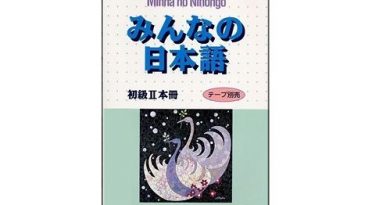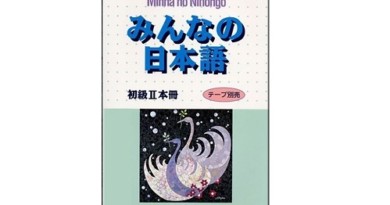Contents
- 1 Learn minna no nihongo lesson 9
- 1.1 6. Mondai
- 1.1.1 Exercise 1: Listen and answer questions
- 1.1.2 Exercise 2: Listen and choose true or false
- 1.1.3 Exercise 3 : Fill in the blank
- 1.1.4 Exercise 4: Fill the appropriate question words in the blank
- 1.1.5 Exercise 5: Fill the appropriate particles in the blank
- 1.1.6 Exercise 6: Fill in the blank.
- 1.1.7 Exercise 7: Read the following paragraph and choose true or false
- 1.1 6. Mondai
Learn minna no nihongo lesson 9
6. Mondai
To do the “Mondai” section, you need “minna no nihongo” book and audios for listening
Exercise 1: Listen and answer questions
With this exercise, you will hear the questions and answer. When listening, stop for 30 seconds to 1 minute in each sentence to write the answer. With the questions that you don’t hear clearly, listen them the second time. After listening 1 or 2 times to answer the question, you can listen again to hear each word clearly and copy it to improve your listening skill and remember words better.
1.
お母さんは料理が上手ですか。(Is your mother good at cooking?)
…はい、上手です。
2.
Exercise 2: Listen and choose true or false
With this exercise, the listeners will listen to the conversation, then there will be a key point about the problem that will be raised in the conversation. The listeners must choose whether the content is true or false according to what they has listened. If it is true, select 〇 (maru) and if it is false, choose ✖ (batsu). In this listening section, you should pay attention to the concluding sentence to see whether that sentence is given in a positive or negative form in order to avoid being “tricked” when listening.
Answer:(✖)
2.
Answer:(✖)
Answer:(〇)
4.
Answer:(✖)
5.
Answer:(〇)
Exercise 3 : Fill in the blank
With this exercise, you should pay attention to the words immediately before or after the blank to choose the right words.
1.マリアさんは漢字が ( ) わかりません。
(Maria doesn’t understand Kanji at all.)
2. あの人はお金が( ) あります。
3. このパンは ( ) おいしいです。
4. ワンさんは英語が( ) わかります。
Exercise 4: Fill the appropriate question words in the blank
With this exercise, you should pay attention to the answers to see if they mention things, ways, times, places or reasons to choose the best question word.
1.
2.
3.
4.
Exercise 5: Fill the appropriate particles in the blank
With this exercise, you should pay attention to the words immediately before or after the blank to choose the right particles.
1. マリアさんはダンス ( )上手です。
2. わたしはタイ語 ( )わかりません。
3. 日曜日は友達と約束 ( )あります。
4. あしたは忙しいです ( )、どこも行きません。
5. どんな映画 ( )好きですか。
6. 歌( )下手です( )カラオケが嫌いです。
Exercise 6: Fill in the blank.
1. テニスが好きですから、____。
2. 寒いですから、____。
3. お金がありませんから、_____。
4. あしたは日曜日ですから、____。
Exercise 7: Read the following paragraph and choose true or false
He gave a concert ticket for his teacher on her birthday. The teacher went with her friend. Mr. Yamada is very sorry.
(Because Mr. Yamada loves dancing, he goes to dance school every day.)
(Mr. Yamada is good at dancing, so he sometimes teaches dancing.)
(Mr. Yamada received concert tickets from his teacher.)
(Mr. Yamada went to the concert with his teacher.)
Above is instruction to Learn minna no nihongo lesson 9 . See other lessons in category : learn Japanese with minna no nihongo or: Japanese for beginers.

